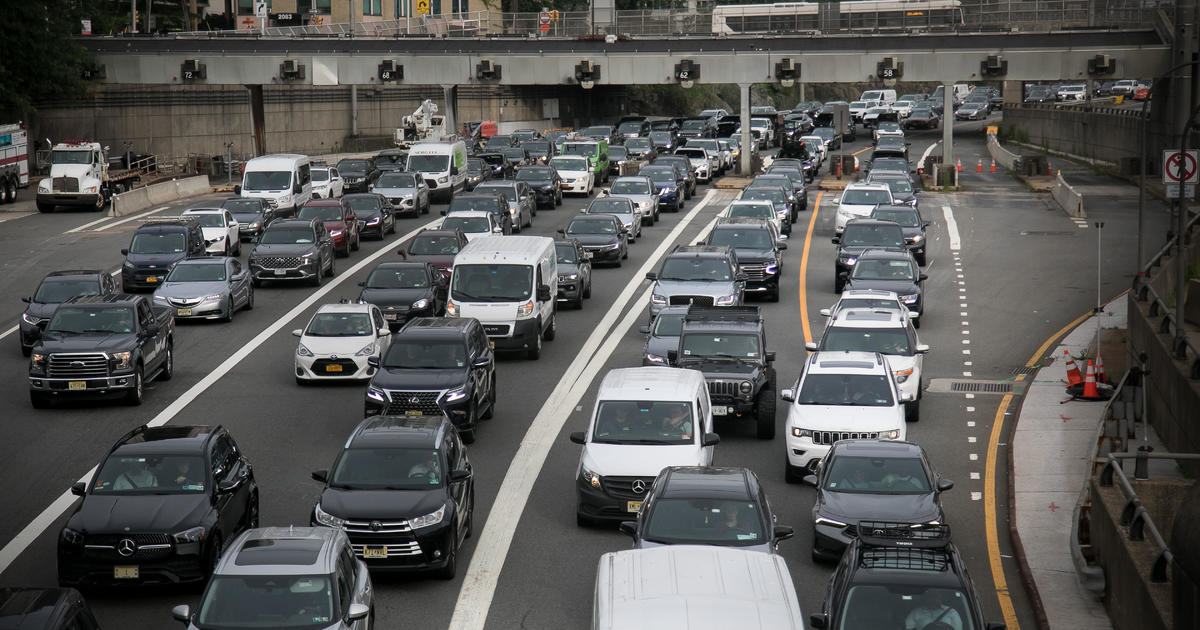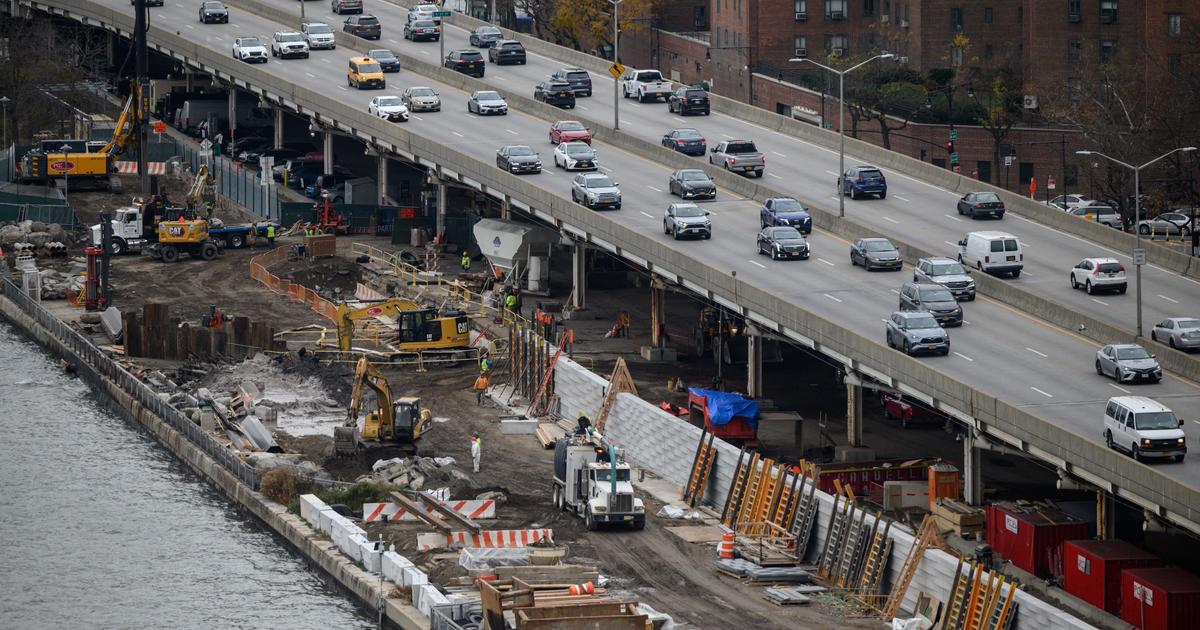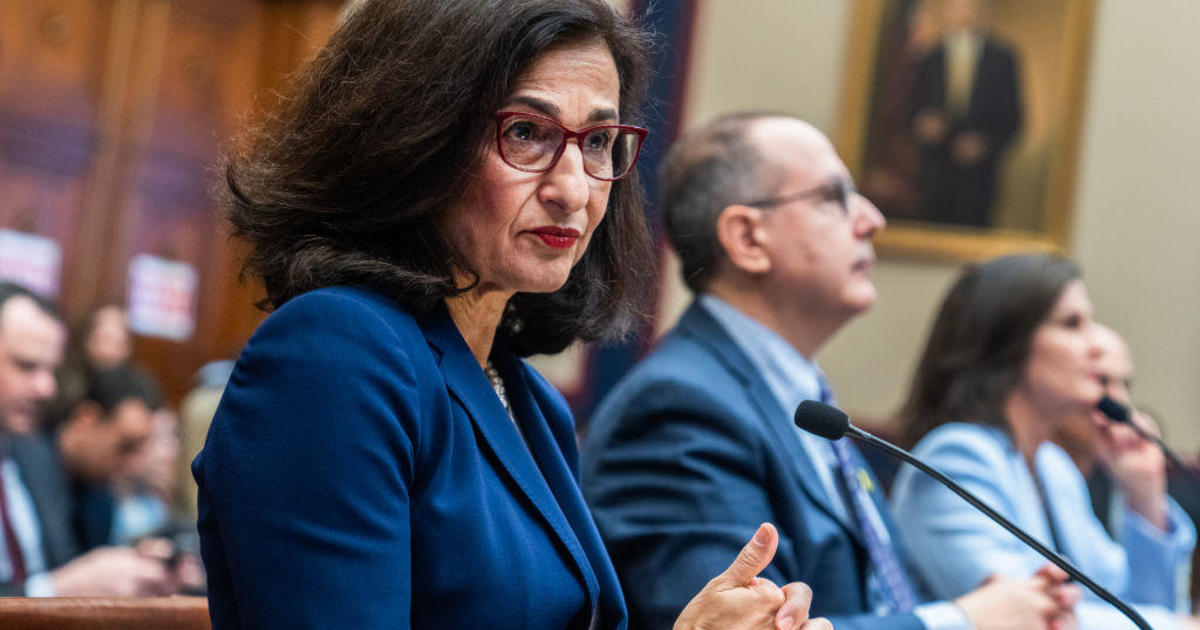Mayor De Blasio Discusses Trump's Proposed Budget, Says President 'Should Remember Where He Comes From'
WASHINGTON (CBSNewYork/AP) -- Hours after President Donald Trump unveiled a $1.15 trillion budget on Thursday, Mayor Bill de Blasio said the proposed budget would have a "hugely negative impact" on NYC and told the president he should come to his hometown and talk to the people this budget will personally impact.
"President Trump should remember where he comes from," said de Blasio. "New York City is directly in the crosshairs of this budget proposal, the people of our city -- their lives --would be hurt by it," de Blasio said. "We intend to fight many, many items in President Trump's budget proposal."
The mayor said he'll work with members of the House and Senate as well as mayors and governors from all over the country.
"There are cuts in this proposal that will be met with massive negative response all over the country," de Blasio said. "We're going to have a lot of allies who will join with us to stop these cuts."
If the proposed budget were passed in the current form, de Blasio said as much as $190 million could be cut from the city's efforts to fight terrorism.
"We can not afford to cut corners when fighting terrorism," NYPD Commissioner James O'Neill added.
De Blasio also warned of possible steep cuts to education and public housing programs. Key infrastructure projects including the Second Avenue subway extension and the Gateway Tunnel could also be impacted, the mayor said.
The president's budget proposes a far-reaching overhaul of federal government spending that slashes many domestic programs to finance a significant increase in the military and make a down payment on a U.S.-Mexico border wall.
Trump's proposal seeks to upend Washington with cuts to long-promised campaign targets like foreign aid and the Environmental Protection Agency as well as strong congressional favorites such as medical research, help for homeless veterans and community development grants.
"A budget that puts America first must make the safety of our people its number one priority -- because without safety, there can be no prosperity," Trump said in a message accompanying his proposed budget that was titled "America First: A Budget Blueprint to Make America Great Again."
The $54 billion boost for the military is the largest since President Ronald Reagan's Pentagon buildup in the 1980s, promising immediate money for troop readiness, the fight against Islamic State militants and procurement of new ships, fighter jets and other weapons. The 10 percent Pentagon boost is financed by $54 billion in cuts to foreign aid and domestic agencies that had been protected by former President Barack Obama.
The budget goes after the frequent targets of the party's staunchest conservatives, eliminating the National Endowment for the Arts, legal aid for the poor, low-income heating assistance and the AmeriCorps national service program established by former President Bill Clinton.
"Love of music and the arts brings us together, and celebrates the richness of American culture and our spirit of curiosity and creativity," said Neil Portnow, President/CEO The Recording Academy. "Music and art serve as one of America's greatest exports, and support jobs for creators in cities, towns and rural areas across the country. The White House proposal to eliminate funding for the National Endowment for the Arts is shortsighted and alarming. The modest support that we provide to music and the arts is returned many times over, whether measured in jobs and economic impact, or sheer cultural enrichment and introspection. The Recording Academy will ask Congress to maintain funding for the National Endowment for the Arts and renew our commitment to America's creators."
Such programs were the focus of lengthy battles dating to the GOP takeover of Congress in 1995 and have survived prior attempts to eliminate them. Lawmakers will have the final say on Trump's proposal in the arduous budget process, and many of the cuts will be deemed dead on arrival. Trump budget chief Mick Mulvaney acknowledged to reporters that passing the cuts could be an uphill struggle and said the administration would negotiate over replacement cuts.
Mulvaney also went after GOP favorites, including aid to rural schools and health research, while eliminating subsidies for rural air service and the federal flood insurance program that's a linchpin for the real estate market, especially in coastal southern states and the Northeast.
Trump's GOP allies Capitol Hill gave it only grudging praise, if any. "Congress has the power of the purse," reminded House Appropriations Committee Chairman Rodney Frelinghuysen, R-N.J. "I look forward to reviewing this," said House Speaker Paul Ryan, R-Wis.
"This is not a take-it-or-leave-it budget," Mulvaney admitted.
Law enforcement agencies like the FBI would be spared, while the border wall would receive an immediate $1.4 billion infusion in the ongoing fiscal year, with another $2.6 billion planned for the 2018 budget year starting Oct. 1.
Trump repeatedly claimed during the campaign that Mexico would pay for the wall when, in fact, U.S. taxpayers will foot the bill.
Twelve of the government's 15 Cabinet agencies would absorb cuts under the president's proposal. The biggest losers are Agriculture, Labor, State, and the Cabinet-level EPA. The Defense Department, Department of Homeland Security and Department of Veterans Affairs are the winners.
More than 3,000 EPA workers would lose their jobs and programs such as Obama's Clean Power Plan, which would tighten regulations on emissions from power plants seen as contributing to global warming, would be eliminated. Popular EPA grants for state and local drinking and wastewater projects would be preserved, however, even as research into climate change would be eliminated.
"This is nothing short of a declaration of war on the environment," said Dan Shapley of Riverkeeper, a non-profit that protects the Hudson River and its tributaries.
Trump's proposal covers only roughly one-fourth of the approximately $4 trillion federal budget, the discretionary portion that Congress passes each year. It doesn't address taxes, Social Security, Medicare and Medicaid, or make predictions about deficits and the economy. Those big-picture details are due in mid-May, and are sure to show large -- probably permanent -- budget deficits. Trump has vowed not to cut Social Security and Medicare and is dead set against raising taxes.
"The president's going to keep his promises" to leave Social Security and Medicare alone, Mulvaney said.
But the budget increases user fees, boosting the airline ticket tax by $1 per one-way trip.
The so-called "skinny budget" glosses over cuts to many sensitive programs such as community health centers, national parks, offering only a vague, two-page summary of most agencies, including the Pentagon, where allocating its additional billions is still a work in progress.
Trump's proposal is sure to land with a thud on Capitol Hill, and not just with opposition Democrats outraged over cuts to pet programs such as renewable energy, climate change research and rehabilitation of housing projects.
Republicans like Sen. Rob Portman of Ohio are irate over planned elimination of a program to restore the Great Lakes. Top Republicans like Majority Leader Mitch McConnell of Kentucky and Senate Foreign Relations Committee Chairman Bob Corker of Tennessee are opposed to drastic cuts to foreign aid. And even GOP defense hawks like Armed Services Committee Chairman Mac Thornberry of Texas aren't satisfied with the $54 billion increase for the military.
Before the two sides go to war over Trump's 2018 plan, they need to clean up more than $1.1 trillion in unfinished agency budgets for the current year. A temporary catchall spending bill expires April 28; negotiations have barely started and could get hung up over Trump's request for the wall and additional border patrol and immigration enforcement agents, just for starters.
Some of the most politically sensitive domestic programs would be spared, including food aid for pregnant women and their children, housing vouchers for the poor, aid for special education and school districts for the poor, and federal aid to historically black colleges and universities.
But the National Institutes of Health would absorb a $5.8 billion cut despite Trump's talk in a recent address to Congress of finding "cures to the illnesses that have always plagued us." Subsidies for airlines serving rural airports in Trump strongholds would be eliminated. It would also shut down Amtrak's money-losing long-distance routes and kill off a popular $500 million per-year "TIGER Grant" program for highway projects created by Obama.
(© Copyright 2017 CBS Broadcasting Inc. All Rights Reserved. The Associated Press contributed to this report.)



